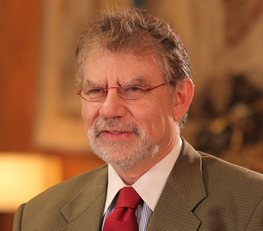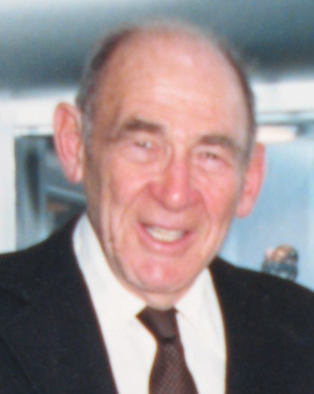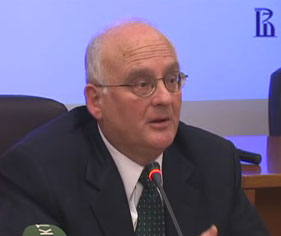Related Research Articles

The Bronze Age is a historic period, lasting approximately from 3300 BC to 1200 BC, characterized by the use of bronze, the presence of writing in some areas, and other early features of urban civilization. The Bronze Age is the second principal period of the three-age system proposed in 1836 by Christian Jürgensen Thomsen for classifying and studying ancient societies and history.

A civilization is any complex society characterized by the development of the state, social stratification, urbanization, and symbolic systems of communication beyond natural spoken language.
World history or global history as a field of historical study examines history from a global perspective. It emerged centuries ago; leading practitioners have included Voltaire (1694–1778), Hegel (1770–1831), Karl Marx (1818–1883), Oswald Spengler (1880–1936), and Arnold J. Toynbee (1889–1975). The field became much more active in the late 20th century. It is not to be confused with comparative history, which, like world history, deals with the history of multiple cultures and nations, but does not do so on a global scale. World history looks for common patterns that emerge across all cultures. World historians use a thematic approach, with two major focal points: integration and difference.

Samuel Phillips Huntington was an American political scientist, adviser, and academic. He spent more than half a century at Harvard University, where he was director of Harvard's Center for International Affairs and the Albert J. Weatherhead III University Professor.
Indology, also known as South Asian studies, is the academic study of the history and cultures, languages, and literature of the Indian subcontinent, and as such is a subset of Asian studies.

Richard Nelson Frye was an American scholar of Iranian and Central Asian studies, and Aga Khan Professor Emeritus of Iranian Studies at Harvard University. His professional areas of interest were Iranian philology and the history of Iran and Central Asia before 1000 CE.

Joseph Halevi Horowitz Weiler is an American academic, currently serving as European Union Jean Monnet Chair at New York University Law School and Senior Fellow of the Minda de Gunzburg Center for European Studies, Harvard.

Stanley Jeyaraja Tambiah was a social anthropologist and Esther and Sidney Rabb Professor (Emeritus) of Anthropology at Harvard University. He specialised in studies of Thailand, Sri Lanka, and Tamils, as well as the anthropology of religion and politics.
Christine L. Borgman is Distinguished Professor and Presidential Chair in Information Studies at UCLA. She is the author of more than 200 publications in the fields of information studies, computer science, and communication. Two of her sole-authored monographs, Scholarship in the Digital Age: Information, Infrastructure, and the Internet and From Gutenberg to the Global Information Infrastructure: Access to Information in a Networked World, have won the Best Information Science Book of the Year award from the American Society for Information Science and Technology. She is a lead investigator for the Center for Embedded Networked Sensing (CENS), a National Science Foundation Science and Technology Center, where she conducts data practices research. She chaired the Task Force on Cyberlearning for the NSF, whose report, Fostering Learning in the Networked World, was released in July, 2008. Prof. Borgman is a Fellow of the American Association for the Advancement of Science (AAAS), a Legacy Laureate of the University of Pittsburgh, and is the 2011 recipient of the Paul Evan Peters Award from the Coalition for Networked Information, Association for Research Libraries, and EDUCAUSE. The award recognizes notable, lasting achievements in the creation and innovative use of information resources and services that advance scholarship and intellectual productivity through communication networks. She is also the 2011 recipient of the Research in Information Science Award from the American Association of Information Science and Technology. In 2013 she became a fellow of the Association for Computing Machinery.
Joyce Marcus is a Latin American archaeologist and professor in the Department of Anthropology, College of Literature, Science, and the Arts at the University of Michigan, Ann Arbor. She also holds the position of Curator of Latin American Archaeology, University of Michigan Museum of Anthropological Archaeology. Marcus has published extensively in the field of Latin American archaeological research. Her focus has been primarily on the Zapotec, Maya, and coastal Andean civilizations of Central and South America. Much of her fieldwork has been concentrated in the Valley of Oaxaca, Mexico. She is known for her "Dynamic model", four-tiered hierarchy, and her use of interdisciplinary study.
Armenian studies or Armenology is a field of humanities covering Armenian history, language and culture. The emergence of modern Armenian studies is associated with the foundation of the Catholic Mechitarist order in the early 18th century. Until the early 20th century, Armenian studies were largely conducted by individual scholars in the Armenian communities of the Russian Empire, Europe, Constantinople and Vagharshapat in Armenia. After the establishment of Soviet rule, Armenian studies, and sciences in general, were institutionalized in Armenia and put under direct control of the Academy of Sciences. Today, numerous research centers in many parts of the world specialize in Armenian studies.

Atlantic history is a specialty field in history that studies the Atlantic World in the early modern period. The Atlantic World was created by the discovery of a new land by Europeans, and Atlantic History is the study of that world. It is premised on the idea that, following the rise of sustained European contact with the New World in the 16th century, the continents that bordered the Atlantic Ocean—the Americas, Europe, and Africa—constituted a regional system or common sphere of economic and cultural exchange that can be studied as a totality.

Steven Levitsky is an American political scientist and Professor of Government at Harvard University. A comparative political scientist, his research interests focus on Latin America and include political parties and party systems, authoritarianism and democratization, and weak and informal institutions. He is notable for his work on competitive authoritarian regimes and informal political institutions.

Sanjay Subrahmanyam is an Indian historian who specialises in the early modern period and in Connected History. He is the author of several books and publications. He holds the Irving and Jean Stone Endowed Chair in Social Sciences at UCLA which he joined in 2004.

Comparative studies of the Roman and Han empires is a historical comparative research involving the roughly contemporaneous Roman Empire and the Han dynasty of early imperial China. At their peaks, both states controlled up to a half of the world population and produced political and cultural legacies that endure to the modern era; comparative studies largely focus on their similar scale at their pinnacles and on synchronism in their rise and decline. The Han and Roman empires disintegrated at roughly the same time in the third and forth respectively centuries A.D. and the Western Roman empire fell in the fifth century. But the Chinese empire came together again under the Sui and Tang dynasties.

Arthur S. Iberall was an American physicist/hydrodynamicist and engineer who pioneered homeokinetics, the physics of complex, self-organizing systems. He was the originator of the concept of lines of non-extension on the human body which was used to create workable space suits.

Philip G. Altbach is an American author, researcher and former professor at Boston College, and the founding director of the Boston College Center for International Higher Education.

Why the West Rules—For Now: The Patterns of History, and What They Reveal About the Future is a history book by a British historian Ian Morris, published in 2010.
Claude Emerson Welch Jr., State University of New York (SUNY) at Buffalo (UB) Professor of Political Science and SUNY Distinguished Service Professor of Political Science, was born on 12 June 1939 in Boston, Massachusetts, to Dr. Claude E. Welch, Sr., and Phyllis Paton Welch. The younger Welch “had the values of hard work and respect for others instilled him from an early age.” His father worked his way through Harvard Medical School and served as a front-line surgeon in World War II. In his medical career, he became “a fixture at Massachusetts General Hospital for more than 40 years, was an innovative surgeon, a tireless worker, prolific researcher and an advocate of building strong ties with his patients, themes that would come to be synonymous with his…son.”
References
- ↑ "Editorial Team". Comparative Civilizations Review . Retrieved August 27, 2014.
- ↑ "Boards & Staff". Journal of World-Systems Research. Archived from the original on September 4, 2014. Retrieved August 27, 2014.
- ↑ Wilkinson, David (1987). "The Connectedness Criterion and Central Civilization". In Melko, Matthew; Scott, Leighton (eds.). The Boundaries of Civilizations in Space and Time. University Press of America. pp. 17–21. ISBN 0819164925.
- ↑ "Civilization: Definitions and Recommendations". International Society for the Comparative Study of Civilization. Archived from the original on October 1, 2014. Retrieved August 27, 2014.
- ↑ Wilkinson, David (Spring 1994). "Civilizations Are World Systems!". Comparative Civilizations Review . 30 (30): 59–71. Retrieved November 24, 2017.
- ↑ Wilkinson, David (Fall 1987). "Central Civilization". Comparative Civilizations Review . 17 (17): 31–59. Retrieved November 24, 2017.
- ↑ Wilkinson, David (Fall 2004). "The Power Configuration Sequence of the Central World System, 1500-700 BC". Journal of World-Systems Research . 10 (3): 654–720. Retrieved November 24, 2017.
- ↑ See, e.g., Atasoy, Yildiz, ed. (2009). Hegemonic Transitions, the State and Crisis in Neoliberal Capitalism. Routledge. p. 80. ISBN 9781134026784.